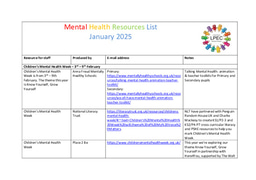SEND Autumn 2023 Update

Dear Colleagues
I hope that you all had a restful and relaxing summer break and the first two weeks of the new academic years have gone well.
There have been a number of new documents and updated guidance issued in the last three months. In this update I have included educational news from this period that I think is important for you to know about.
On 31st August following a cabinet reshuffle a new Minister for Children and Families was appointed, replacing Claire Coutinho. David Johnston MP has been appointed into this role, the seventh Minister to oversee the SEND reforms.
Statutory Documents from DfE
Keeping Children Safe in Education – Updated 1st September
There have not been too many changes/updates for this year but please note the following:
- Filtering and Monitoring – KCSIE 2023 emphasises the importance of filtering and monitoring in schools, particularly regarding online safety.
- Emphasis about how the term ‘children missing education’ is different from ‘children absent from education’. Supporting children who are absent from education helps prevent the risk of them becoming a child missing education in the future.
- Inform shortlisted candidates that you might conduct an online search as part of due diligence checks in the recruitment process
- More emphasis on how your school needs to create the right culture so staff feel comfortable discussing safeguarding matters in and outside of work, including online
- There’s a new heading and paragraph which says that if your school receives an allegation relating to an incident where an individual or organisation was using your school premises for running an activity for children, you should follow your safeguarding policies and procedures and inform the local authority designated officer (LADO), as you would with any safeguarding allegation
- Language changes in support of updated behaviour guidance – teachers can sanction pupils whose conduct falls below the standard which could be reasonably expected of them
There have also been some updates to Annex B.
School suspensions and permanent exclusions – Updated 1st September
This statutory guidance on the suspension and permanent exclusion of pupils from local-authority-maintained schools, academies and pupil referral units has been updated to reflect the government’s ambition to create high standards of behaviour in schools so that children and young people are protected from disruption and are in a calm, safe, and supportive environment that brings out the best in every pupil. Part 2 of this document outlines the changes that have ben made.
On Page 23 there is specific reference to pupils with SEND.
Early years foundation stage (EYFS) statutory framework – Updated 4th September
This statutory guidance on the standards that school and childcare providers must meet for the learning, development and care of children from birth to 5 has been updated to highlight that the new statutory framework for the early years foundation stage applies from 4 September 2023.
Other Documents
The Reading Framework – Updated 11th July
This guidance has been issued for primary and secondary schools to meet existing expectations for teaching reading. Although it predominantly covers primary schools it does refer to how schools should be supporting reading up to Year 9.
I would imagine that this guidance has not been read (and digested) by many SENCOs – probably only seen by school leaders and literacy and reading leads.
It is a very important document as it sets out what the DfE (and presumably Ofsted) expects schools to be doing to support reading development for all their pupils. There are a number of references to pupils with SEND and/or reading difficulties.
The Ofsted guidance on inspecting maintained schools and academies in England under the education inspection framework has been updated
A summary of changes can be found here.
Searching, screening and confiscation in schools – Updated 19th July
This guidance explaining the powers schools have to screen and search pupils, and to confiscate items they find has been updated to remove references to guidance that has since been updated
Working together to improve school attendance – Updated 5th September
This guidance to help schools, academy trusts, governing bodies and local authorities maintain high levels of school attendance, including roles and responsibilities has been updated with an additional ‘Toolkit for schools: communicating with families to support attendance’ and ‘Annex A: example attendance letters and emails to parents and carers’.
The Prevent Duty – a number of documents have been updated:
- The Prevent duty: an introduction for those with safeguarding responsibilities
- Prevent duty: risk assessment templates
- Making a referral to Prevent
- The Prevent duty: safeguarding learners vulnerable to radicalisation
Toolkit for schools: communicating with families to support attendance
This toolkit provides examples to help you communicate with parents and carers about school attendance.
Information
Length of school week – Updated 17th July
This non-statutory guidance and case studies for schools in England wanting to increase the length of their school week, including those delivering below the minimum 32.5 hours has been updated with Minimum expectation on length of the school week: information note has been replaced by Length of the school week: non-statutory guidance and Length of the school week: case studies.
PE and sport premium for primary schools – Updated 19th July
This guidance sets out how much PE and sport premium funding schools will receive for the academic year 2023 to 2024 and advice on how to spend it. This explains how schools should use the funding more effectively and highlights the importance of sustainability and equal access for all pupils. It confirms that schools must spend the funding in the academic year it has been allocated for. There is also a new section on the upcoming digital tool.
What are ‘ghost children’ and why is school attendance important? – Blog Post – 27th July
The DfE are committed to tackling the factors causing children to miss school. In this blog they set out what parent’s need to know about school attendance.
On Wednesday 23 August, the DfE announced a new contract to support the implementation of the SEND and Alternative Provision Improvement Plan.
They announced that the Reaching Excellence and Ambition for all Children (REACh) consortium, led by PA Consulting in partnership with the Council for Disabled Children, Olive Academies and IMPOWER, they will support the DfE with delivery of a two-year programme to implement, test and refine reforms introduced by the Improvement Plan.
DfE names areas where SEND reforms will be tested – 23rd August
Long-awaited SEND reforms will be tested in 32 areas of the country. They are:
- East Midlands: Leicester, Leicestershire, Rutland
- East of England: Bedford, Central Bedfordshire, Luton
- London: Barnet, Camden, Enfield, Islington
- North East: Durham, Gateshead, Hartlepool, Stockton-on-Tees
- North West: Manchester, Oldham, Rochdale, Trafford
- South East: Brighton, East Sussex, Portsmouth, West Sussex
- South West: Gloucestershire, Swindon
- West Midlands: Herefordshire, Shropshire, Telford and Wrekin, Worcestershire
- Yorkshire and Humber: Bradford, Calderdale, Leeds, Wakefield
New SENCO NPQ to replace NASENCO Award
A new leadership level national professional qualification for SENCOs will replace the existing qualification.
The national professional qualification will become the mandatory qualification for SENCOs from September 2024. Teaching of the national professional qualification for SENCOs will begin in autumn 2024.
The requirement to complete training within 3 years of appointment will continue to apply.
The new NPQ SENCO Framework can be found here.
Other News
Child Poverty Action Group produce resource to support schools to increase access
The Child Poverty Action Group (CPAG) has created a ‘Cost of the School Day Calendar’ resource which aims to help schools identify possible cost barriers during the academic year, and think about some alternatives to help make sure all children and young people can fully participate in education.
Kahoot! for All – Celebrating Neurodiversity produced and supported by Lego Foundation
The Kahoot! for All project, funded by the LEGO Foundation with a grant awarded in 2022, creates opportunities for learning through play with neurodiverse learners in mind.
They are doing this by designing more inclusive learning experiences on the Kahoot! platform, and by offering a collection of kahoots and courses called Uniting Minds, that educate about what neurodiversity is and how to support neurodivergent learners.
Delivering Better Value in SEND
You may have seen a great deal of press coverage about the contract that the DfE has signed with Newton Europe. The consultancy has developed the government’s “delivering better value in SEND” project, which is working with 55 councils to bring down their SEND budget deficits.
It has been reported that part of this contract includes “targeting at least 20 per cent reduction in new education, health and care plans issued”.
The Guardian reported on this on Sunday 10th September and this was followed up with an article in School’s Week where Education committee chair Robin Walker states that he will be “seeking further explanation” from the DfE as this contradicts a statement by the previous minister, Claire Coutinho.
To access more of my resources or blogs, you can visit my full website here.





Please sign in or register for FREE
If you are a registered user on SEND Network, please sign in